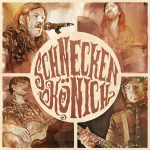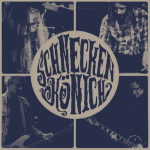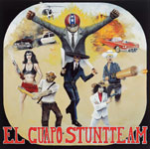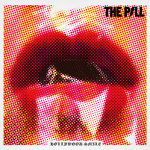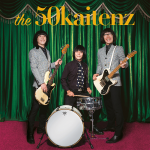SCHNECKENKÖNICH
Slow Gems
[engl] It's still out there, the spirit of the working class. Maybe not necessarily where Marx had placed him. Today, the saturated middle class with their own home, double garage and annual vacation in Thailand stands on the assembly lines of Ford or BMW. The new working class delivers food under precarious conditions in the service of turbo-capitalism, drives bus night shifts, does the dirty work of a professor on a temporary assistant contract or wipes the butts of dementia sufferers for a little applause from the balconies of the higher earners. So new times, which of course are still the same as they always were. There are “those up there”. And there are the people who keep the store running, who straighten their backs and grit their teeth. And who urgently need a beer in the evening. Because the best place is still at the bar. Somewhere between Birth, School, Work, Death there are blues, sweat and beer. Fits pub rock.
Pubrock is the grassroots movement of rock'n'roll. Born in the late 1960s and early 1970s, it brought music back from the oversized stages to the basement clubs and pubs, especially in the English industrial districts, where “workers” were actually still crowding around. Where people drank, laughed and argued. Where the motto was “pub fights, pub gets along” and huge keyboard towers, Mussorgsky adaptations and delicately blown fairy hair were laughed at in never politically correct expressions. Against the then omnipresent mantra of higher!, more complex!, more delicate! Pub rockers used the simplicity of the blues, gut feeling rhythm rumbling, cleaver riffs, brutally fast hooklines and clenched fists raised in the air.
If you want, you can interpret pub rock as the anti-thesis to capitalism. Because although essentially “apolitical”, the lack of ambition for “bigger things” alone means the refusal of permanent growth. And what was forced by the oil crisis in the 1970s - the practical end of the suddenly unaffordable touring throughout the country - also meant, conversely, a return to one's own strengths and resources. “Act local” also meant “in the local pub in your neighborhood”. (A rogue who draws parallels to the current crisis of rock musicians, who are losing their tours in droves and who can hardly call themselves professionals anymore, because that would mean that they could somehow make a living from their music.)
Back then, pub rock triggered the reboot of rock music, was the necessary initial spark and the stepping stone for punk and everything that came after. Sometimes later eaten by one's own children or swept under the carpet of history and largely forgotten - Kursaal Flyers, Dr. Feelgood, Eddie & The Hotrods, Brinsley Schwarz - but sometimes also matured into a central actor or mentor - Nick Lowe, Joe Strummer, Ian Dury, Elvis Costello. And despite the limited resources, pub rock was anything but provincial, it unhesitatingly usurped and "appropriated" what works in every pub in the world, whether in Connewitz/Saxony or Bozeman/Montana: country casualness, heavy rock depth , tinkling honky-tonk pianos, the fearless musical freedom of a Wurlitzer speaker. Since then, the only thing that has been important is that it has to work. And the people there, on this mini stage with their mini equipment, have to fit. To dirty toilets full of stickers and stupid graffiti, to puddles of beer, unwashed hair, worn out clothes. Even with Schneckenkönich everything seems a bit dirty and greasy; Hair, denim jackets, and anyway the music, which revolves around a few blues patterns and would inevitably be denounced as "authentic", "honest" and "handmade" in the three-part announcements that might be left in the local press. A friend of the band once called it “the finest working-class hippie shit” and that pretty much says it all. The rest is available at the counter in the evening.

